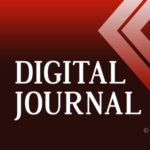Modern society – who is in the crowd? — Image by © Tim Sandle
I am not a typo is a campaign that calls for Tech Giants to update ‘harmful’ systems to reflect today’s multicultural societies. The campaign launches with open letter and billboard calling for change.
Some 41 percent of names of babies’ born in England and Wales are essentially ‘typos’ – as revealed by a new campaign calling on the Tech Giants to correct autocorrect and spell-check.
I am not a typo (IANAT) advocates for greater tech inclusivity. The campaign body has undertaken research into baby names in the UK to demonstrate how the technology we use should be more inclusive and reflect today’s multicultural UK.
Across all girls and boys names given to children in England and Wales in 2021 (with minimum three occurrences), 5,492 of 13,532 were ‘wrong’, in testing conducted on Microsoft’s English (UK) dictionary – 41 percent. Names deemed typos include many of African, Asian and Eastern European origin – but also popular Scottish, Welsh and Irish names.
I am not a typo analysed the most recent data on baby names in England and Wales released by the Office of National Statistics. The campaign group found that popular names such as Ottilie – with 430 occurrences among girls in England and Wales in 2021 and 1,732 occurrences in the five years analysed were ‘typos’.
Alongside a billboard campaign calling for the Tech Giants to correct autocorrect, an open letter to the technology owners highlights the example of Esmae.
“Esmae – all 398 of her born in England and Wales in 2021 – is wrong, apparently,” the letter writes. “Same for the 447 born in 2020, 501 born in 2019, 480 born in 2018 and 502 born in 2017. That’s 2,328 in the last five years. That’s compared to 36 instances of the name Nigel in that time.”
| Top 10 ‘Typo’ baby girls born in England and Wales, 2021 – and the last five years | |||||||
| Rank | Girls Names | 2021 Babies | 2020 | 2019 | 2018 | 2017 | 2017-2021 |
| 1 | Ottilie | 430 | 399 | 351 | 327 | 225 | 1,732 |
| 2 | Esmae | 398 | 477 | 501 | 480 | 502 | 2,358 |
| 3 | Liyana | 272 | 213 | 196 | 158 | 153 | 992 |
| 4 | Ayda | 267 | 344 | 262 | 210 | 129 | 1,212 |
| 5 | Seren | 229 | 229 | 249 | 290 | 328 | 1,325 |
| 6 | Maeva | 226 | 125 | 57 | 14 | 7 | 429 |
| 7 | Dua | 225 | 204 | 126 | 115 | 63 | 733 |
| 8 | Mirha | 218 | 160 | 50 | 59 | 12 | 499 |
| 9 | Haniya | 177 | 195 | 213 | 215 | 196 | 996 |
| 10 | Inaya | 174 | 151 | 120 | 148 | 133 | 726 |
| Total | 2,616 | 2,497 | 2,125 | 2,016 | 1,748 | 11,002 | |
An estimated 3,079 out of 7,330 names given to girls in 2021 in England and Wales (with minimum of three occurrences) were ‘typos’, according to Microsoft Word’s English (UK) dictionary. Analysing names given to boys in England and Wales in 2021, 2,413 out of 6,202 (39%) names (with minimum three occurrences) were ‘typos’.
| Top 10 ‘Typo’ baby boys born in England and Wales, 2021 – and the last five years | |||||||
| Rank | Boys Names | 2021 Babies | 2020 | 2019 | 2018 | 2017 | 2017-2021 |
| 1 | Eesa | 293 | 283 | 285 | 289 | 328 | 1,478 |
| 2 | Rafe | 248 | 175 | 118 | 140 | 160 | 841 |
| 3 | Matei | 242 | 264 | 269 | 221 | 203 | 1,199 |
| 4 | Finnley | 171 | 171 | 139 | 123 | 135 | 739 |
| 5 | Zayan | 170 | 185 | 155 | 128 | 118 | 756 |
| 6 | Mylo | 164 | 161 | 128 | 132 | 119 | 704 |
| 7 | Osian | 163 | 324 | 290 | 337 | 338 | 1,452 |
| 8 | Zayaan | 160 | 141 | 119 | 115 | 107 | 642 |
| 9 | Teddie | 157 | 151 | 168 | 169 | 181 | 826 |
| 10 | Yunus | 145 | 118 | 125 | 100 | 99 | 587 |
| Total | 1,913 | 1,973 | 1,796 | 1,754 | 1,788 | 9,224 | |
Supporting the campaign, Professor Rashmi Dyal-Chand of Northeastern University in the US, author of the paper Autocorrecting for Whiteness, says in a statement provided to Digital Journal: “My name is Rashmi, not Rashi, Rush me, or Sashimi, autocorrect notwithstanding. For people with names like mine, autocorrect is not convenient and helpful. It is unhelpful. And yes – it is harmful.”
National Records of Scotland data analysed found that across all names (girls and boys) given to children in 2022 in Scotland, 3,347 of 8,074 (41 percent) were ‘typos’, according to Microsoft’s English (UK) dictionary including prominent names like Ruaridh, Lochlan, Maeva, Ayda and Fiadh.
And the same English (UK) dictionary deemed popular names of babies born in Wales to be incorrect – like Alys, Seren and Osian – as well as names of babies in Northern Ireland, including Oisin, Daithi, Meabh and Eabha.

Dr. Tim Sandle is Digital Journal’s Editor-at-Large for science news.
Tim specializes in science, technology, environmental, business, and health journalism. He is additionally a practising microbiologist; and an author. He is also interested in history, politics and current affairs.

